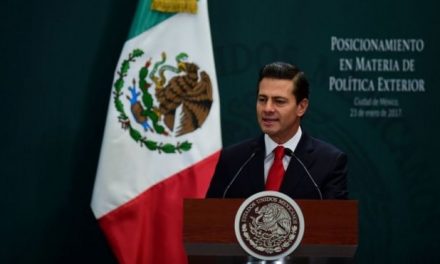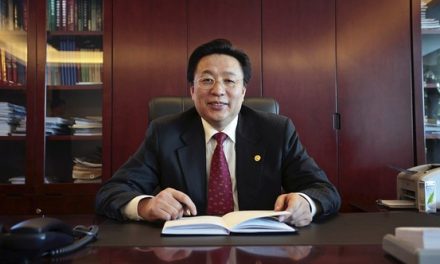25 June 2014
International Consortium of Investigative Journalists (ICIJ) released a report, after sifting through a cache of 2.5 million leaked files, which exposed Chinese political and corporate elite’s use of offshore companies to hide their real wealth. ICIJ got the secret files from two offshore firms — Singapore-based Portcullis TrustNet and British Virgin Islands (BVI) based Commonwealth Trust Limited. ICIJ was helped in this task of sifting through the files, by more than 50 reporting partners in Europe, North America, Asia and other regions.
Portcullis TrustNet originated in Cook Islands, a protectorate of New Zealand. Now it is said to be head-quartered in Singapore with branch offices in 16 other locations.
On its website, it describes itself as a “one-stop shop,” employing lawyers and accountants who help “high net worth” clients manage their money and business activities. It also claims to be the largest independent operator in Asia in this field. The important product Trustnet sells is secrecy – if summarised in one word. The company helps to keep the owner’s identity secret by creating maze-like layers of companies and financial trusts in multiple countries.
The Cook Islands’ Parliament approved laws governing offshore banking, companies, trusts and insurance in 1981. Mike Mitchell, a New Zealand lawyer was the solicitor general of Cook Islands at that time and helped in the introduction of the law. He left his position as solicitor general in 1986 and in 1987 set up a service company under the name Pacific Trustee Company Limited and then International Trust Corporation Limited. Later it was named TrustNet in the early 1990s and, finally, Portcullis TrustNet.
A scandal broke out in 1994 in the New Zealand Parliament in which a company called European Pacific Banking Corporation persuaded the Cook Islands tax authority to accept NZ$2 million in taxes — money that was later returned, after a reduction of NZ$50,000 as a fee. British judge summed it up later, “thus European Pacific was better off by $1.95 million, the Cook Islands was better off by $50,000 and the New Zealand Government was worse off by $2 million.”
Some of the world’s major banks, such as UBS, Deutsche Bank and Credit Suisse subsidiary Clariden used the secret services of TrustNet. Leading accounting firms such as PricewaterhouseCoopers, Deloitte and KPMG also have used its services.
A Singaporean lawyer, David Chong, bought TrustNet in 2004 and merged it with his existing offshore services company, called Portcullis. Chong was an experienced offshore lawyer who had helped draft the offshore legislation for the Malaysian island offshore centre of Labuan, a jurisdiction that is included in the company’s work.
The ICIJ report shows, for instance, the real estate company Excellence Effort Property Development in BVI is 50% owned by current President Xi Jinping’s brother-in-law. The other half is owned by another BVI company belonging to Li Wa and Li Xiaoping, property tycoons who won a $2 billion bid to purchase commercial real estate in Shenzhen last year.
It also reveals that former Premier Wen Jiabao’s son and his son-in-law set up companies in British Virgin Islands (BVI) to own their ill-gotten riches.
Even if the growth in the onshore and offshore wealth was not strictly ‘illegal’, it was often tied to ‘conflict of interest and covert use of government power’. If there was transparency in the system the Chinese people would know how corrupt the system is. The top level corruption is becoming more sensitive as the economy cools down and the gap between the rich and the poor become wider and wider.
According to the ICIJ report some 22,000 nationals, including some living in Hong Kong, have secret bank accounts in BVI.
One of the reasons for Chinese nationals to turn to offshore business is because the laws reorganizing China’s economy were written with state-owned enterprises in mind and not the private sector.
Companies in the US and in Europe also preferred to deal with offshore Chines company than directly with a company in China because of lack of clear laws governing businesses in China.
ICIJ has kept the identity of the news outlet confidential to protect journalists from government retaliation. ICIJ had the help of the Hong Kong newspaper Ming Pao, the Taiwanese magazine CommonWealth and the German newspaper Süddeutsche Zeitung in this grand investigation.
Names of those owning offshore companies as revealed by ICIJ include:
Those in the Government
Deng Jiagui – husband of older sister of the President
Wen Yunsong – Son of former Premier Wen Jiabao
Liu Chunhang Son-in-law of former Premier Wen Jiabao
Hu Yishi – First cousin once removed of former President Hu Jintao
Li Xiaolin – Daughter of former Premier Li Peng
Wang Zhi – son of a former vice president
Wang Jun – son of a former vice president
Fu Liang – Son of ‘Eight Elders’ of Communist Party.
Yeh Shen-ji – Nephew of one of PRC’s founders
Wang Jinjing – Granddaughter of a former vice president
Su Zhijun – Granson of a well-known PLA commander
Here are some of the rich and famous people of China who have companies in tax havens:
Ma Huateng and Zhang Zhidong – co-founders of internet giant Tencent
Yang Huiyan – Richest woman in China
Zhang Xin – Co-founder of SOHO, a large property developer
Shen Guojun – Chairman of Yintai group
Jia Yueting – Chairman of web video company Leshi
Huang Guangyu – Jailed founder of GOME appliances chain
Du Juan – wife of founder of GOME and an executive of GOME
Lu Zhiqiang – Chairman of Oceanwide
Li Jinyuan – Chairman of Tiens Group
Dai Zhikang – founder of Zendai Investment Group
Du Shuanghua – Chairman of Rizhao Holding Group
And many others.
The fact that ICIJ released their names does not mean that these corporate czars have been engaged in any other corrupt activities but just evaded tax to amass their wealth and continue to deprive the government of tax due from them.















